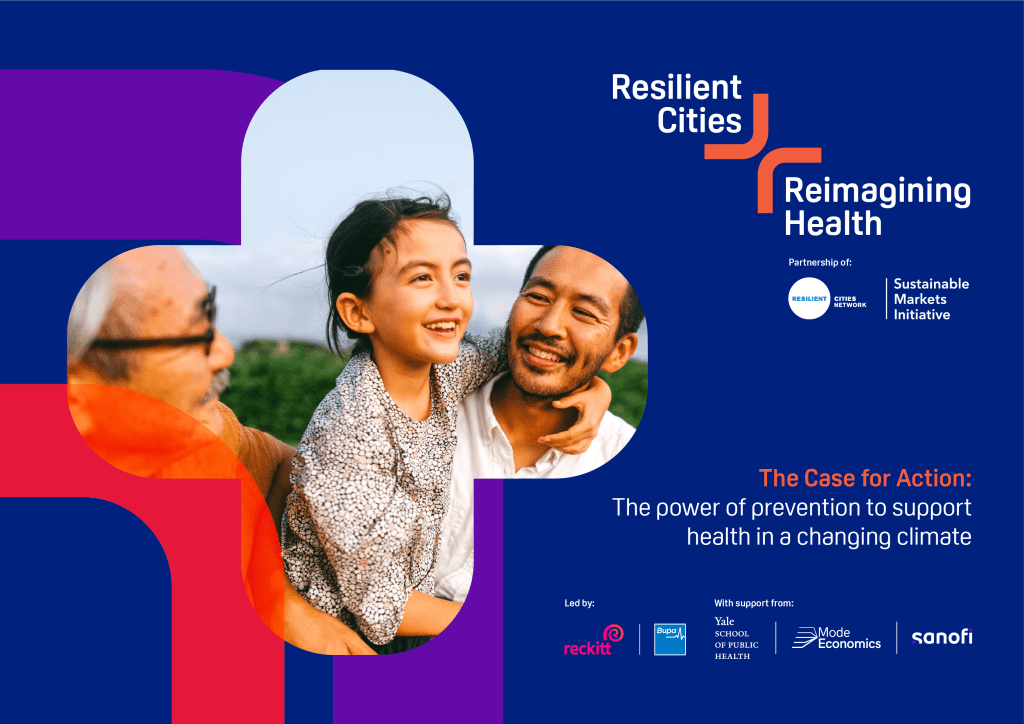Cities are on the frontlines of a dual crisis: climate change and public health. Rising chronic disease, aging populations, skyrocketing healthcare costs, and growing inequalities are pushing health systems to the brink. By 2030, urban mortality from heat is projected to rise 45%, and from air pollution 18%, a combined burden more than double that of transport accidents by 2030.
But there is hope. Practical, city-led interventions can protect communities, reduce inequalities, and deliver major climate and health benefits, while easing pressure on overstretched health systems.
The Case for Action: The power of prevention to support health in a changing climate draws on insights from 29 cities across 19 countries and is the first report of its kind developed with a global Community of Practice spearheaded by Greater Manchester, Lagos, Mexico City and Rio de Janeiro.
Led by the Resilient Cities Network and the Sustainable Markets Initiative Health Systems Task Force, with support from Bupa, Reckitt, Sanofi, Mode Economics, and the Yale School of Public Health, the report shows that simple, preventative measures can transform outcomes.
The modelling shows that, when applied across 11,000 cities, four bundles of interventions could save 725,000 lives annually, reduce $70 billion in healthcare costs, and avoid 15.6 Million Metric Tons of CO₂e (amounting to more than the annual emissions of Prague or Accra). Solutions include:
- Heat and air quality measures such as urban greening, cool roofs, and active transport could cut related deaths by 15%.
- Short-term measures to improve water, sanitation, and hygiene (WASH), such as point-of-use water filtration devices, could prevent 57,000 deaths a year, while water infrastructure upgrades could prevent a further 109,000 deaths a year by 2030.
- Healthy lifestyle promotion through urban design and social prescribing could prevent 131,000 deaths per year by 2030.
- Community resilience measures, such as early warning systems and awareness campaigns, could reduce mortality by up to 13% in some cities, often utilizing simple and affordable tools.
By empowering cities with the data, knowledge, tools, and capacity to act and measure impact, we can build healthier, more equitable and climate-resilient urban futures.

